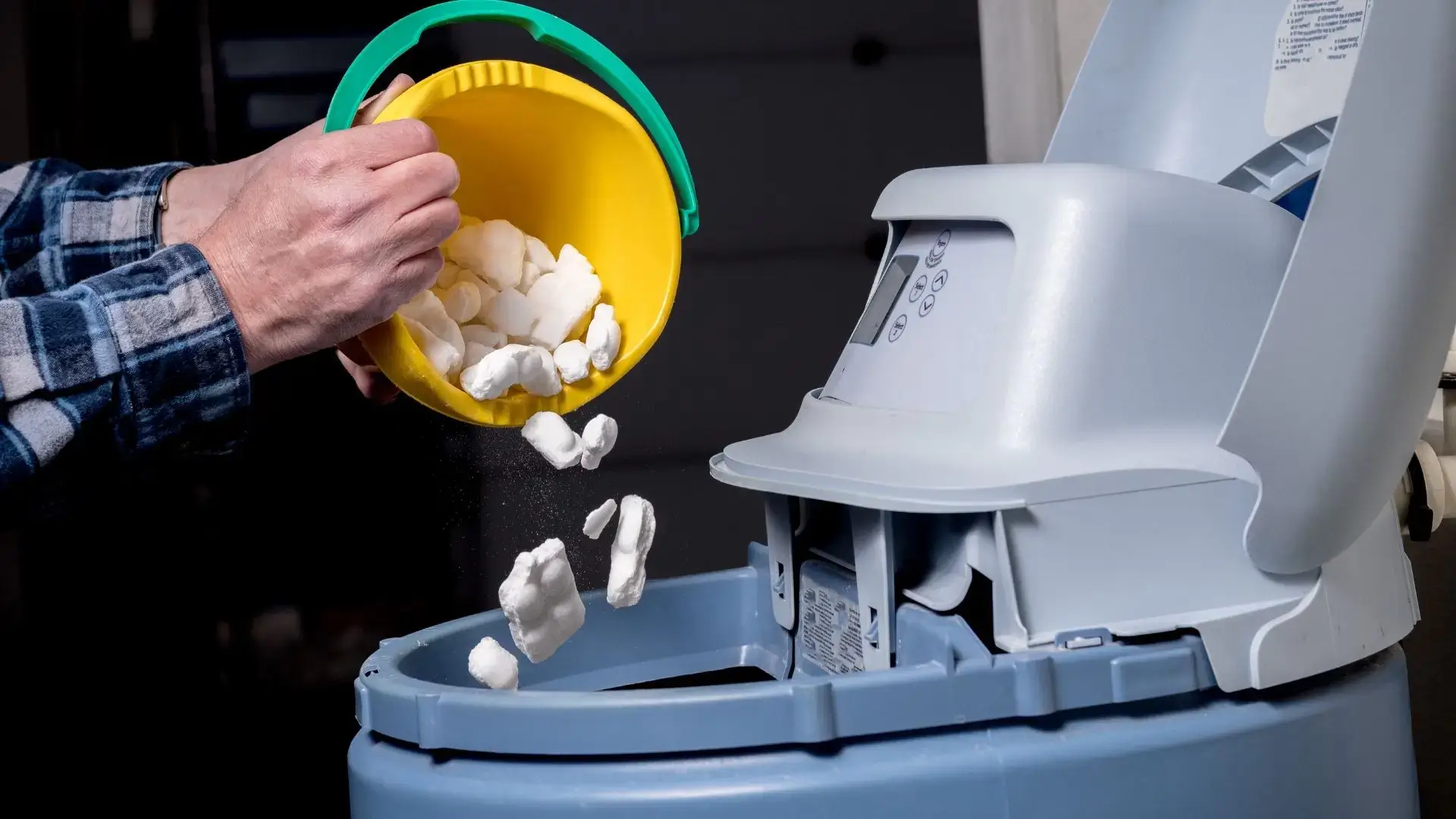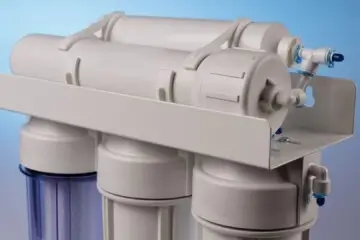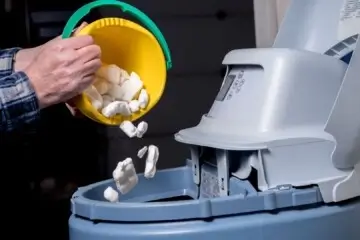Water softeners and conditioners serve distinct purposes in water treatment. Softeners eliminate calcium and magnesium by ion exchange to prevent scale buildup. On the other hand, conditioners modify minerals to hinder scale formation without removing them, utilizing template-assisted crystallization. Softeners necessitate salt for regeneration and may elevate sodium levels. Conversely, conditioners operate without salt and preserve beneficial minerals in the water. Understanding these differences is vital for selecting the appropriate system and optimizing water treatment. For more insights on their effects, maintenance, costs , operation, and mechanisms, delve deeper into the intricacies of water treatment options.
Contact CAN Plumbing and Drainage for all your Water Softener Needs
When addressing your water softener needs, reaching out to CAN Plumbing and Drainage in Mississauga is the most crucial and effective choice. A water softener is specially designed to eliminate minerals like calcium and magnesium from hard water using ion exchange. On the contrary, a water conditioner may not remove these minerals but can prevent limescale buildup. Understanding the distinction between a water softener and a water conditioner is crucial in deciding the best solution for your water treatment needs. Water softening offers a more comprehensive approach to tackling hard water issues, resulting in improved water quality. With our expertise in water treatment and conditioning, CAN Plumbing and Drainage in Mississauga ensures that you receive the most suitable solution tailored to your specific requirements. Contact us today to get started.

CAN Plumbing and Drainage Services Related to Water Softener
At CAN Plumbing and Drainage in Mississauga, we specialize in Water Softener Installation, Replacement, and Repair services. Our expert plumbers in Mississauga is equipped to handle all your water softener needs efficiently and professionally. Whether you need a new water softener system installed, a replacement for an old one, or repairs to your current unit, we have you covered.
Water Softener Installation
At CAN Plumbing and Drainage Services in Mississauga, we specialize in professional water softener installations to ensure optimal performance and efficiency. When comparing water softeners to water conditioners, it’s important to note that water softening systems use ion exchange to remove minerals like calcium and magnesium, while water conditioning systems alter the mineral structure without actually removing them. Unlike water conditioners, water softeners eliminate minerals entirely, reducing the chances of scaling buildup in your plumbing system.
Our expert technicians handle the water softener installation process with precision, ensuring seamless integration with your existing plumbing system. They will also adjust the regeneration cycle based on your household’s water usage, guaranteeing the system operates efficiently. With a thorough understanding of how water softeners work, we tailor the installation to meet your specific needs and provide you with high-quality water softening solutions.

Water Softener Replacement
At CAN Plumbing and Drainage Services in Mississauga, we specialize in water softener installations and also offer efficient and precise water softener replacements. When considering a water softener replacement, it’s essential to understand the difference between a water softener and a water conditioner. Water softeners work by removing minerals that cause hardness, while water conditioners use different methods like magnetic or electronic processes to treat water. Unlike water softeners, water conditioners do not remove minerals but change their structure to prevent scale buildup. When deciding between a water softener or water conditioner replacement, it’s important to assess your water quality needs. Our expert team at CAN Plumbing and Drainage Services in Mississauga can assist you in choosing the right system for your specific requirements.
Water Softener Repair
For effective water softener repairs, rely on CAN Plumbing and Drainage Services in Mississauga to restore your system to optimal functionality. Understanding the distinction between a water conditioner and traditional water softeners is crucial when it comes to water treatment systems. Repairing your water softener is essential in combating the impacts of hard water on your home’s water quality. Our skilled technicians are equipped to accurately diagnose issues with your water softener and offer prompt solutions to ensure peak performance. Don’t let hard water disrupt your daily routine; reach out to us for professional water softener repair services that will improve the efficiency of your water treatment system. Count on CAN Plumbing and Drainage Services in Mississauga for all your water softener maintenance needs.

Impact on Water Quality
When comparing water softeners and water conditioners, it is important to consider their distinct impacts on water quality. Water softeners primarily focus on removing minerals from water, specifically calcium and magnesium ions that cause hardness. This process, known as water softening, helps prevent the formation of scale on water heaters and plumbing fixtures. On the other hand, water conditioners work by altering the chemical structure of minerals rather than removing them, a method known as water conditioning. While water softeners provide a more thorough solution for addressing hard water in your home, water conditioners may also improve water quality by reducing the negative effects of minerals without eliminating them entirely. Understanding these differences is crucial in choosing the most suitable water treatment solution for your needs.
Maintenance Requirements
Maintaining water softeners and water conditioners requires consistent attention to ensure peak performance and longevity. Both systems need periodic maintenance to function effectively. A water softener typically requires more maintenance than a water conditioner due to the regeneration process involved in removing hardness minerals. Regular tasks for water softeners include refilling salt, cleaning the brine tank, and checking for salt bridging. On the other hand, water conditioners may need filter changes or media replacement to address specific water quality issues. Following manufacturer guidelines for maintenance is vital to prevent any issues with the treatment system and ensure the continued quality of the water supply. Understanding these maintenance differences is important for maximizing the benefits of your water treatment system.
Cost Comparison
When comparing the costs of water softeners and water conditioners, it is important to consider not only the initial investment but also the long-term expenses associated with maintenance and operation. Water softeners typically have a higher upfront cost due to their more intricate systems for removing minerals like calcium and magnesium. However, they are generally more effective at providing softer water. On the other hand, water conditioners are usually less expensive initially, as they focus on altering the structure of minerals rather than removing them. Concerning long-term costs, water softeners may require more maintenance and use more salt, leading to higher operational expenses. It’s crucial to consider your water treatment needs and budget when deciding between these options for your home.
Functionality and Purpose
Understanding the functionality and purpose of water softeners and water conditioners is crucial for grasping how each system treats water in residential settings. Water softeners are specifically designed to eliminate minerals such as calcium and magnesium ions, which are responsible for water hardness. These systems utilize ion exchange to replace hard minerals with sodium ions, resulting in softened water. On the other hand, water conditioners, especially salt-free water conditioners, work to modify the structure of hard minerals in water without removing them. This process produces conditioned water that prevents limescale buildup while retaining essential minerals. Your choice between water softeners and water conditioners can significantly impact the quality of water in your home, depending on your specific water treatment requirements.

Mechanism of Action
Water softeners and water conditioners utilize different mechanisms of action to improve water quality in residential settings. Water softeners employ ion exchange to eliminate minerals such as calcium and magnesium, which lead to water hardness. This process involves substituting the ions in the water with sodium ions, effectively softening the water. In contrast, water conditioners use an electrical current to precipitate ions in the water, causing them to form crystals that do not adhere to surfaces. For instance, a salt-free water conditioner may utilize this method to prevent scale buildup without introducing sodium into the water. Understanding the distinction between a water conditioner and a water softener is crucial for effectively addressing the specific needs associated with combating hard water issues.
Frequently Asked Questions About Water Conditioners Vs Water Softeners Near Me
Can Water Softeners And Water Conditioners Be Used to Treat Well Water With High Iron Content?
Water softeners and water conditioners are effective solutions for addressing high iron content in well water. These systems remove minerals like iron using ion exchange or oxidation processes. Regular maintenance is crucial to ensure optimal performance and efficiency.
Are There Any Special Considerations or Precautions to Take When Installing a Water Softener or Water Conditioner in a Home With a Septic System?
When installing a water softener or conditioner in a home with a septic system, it is crucial to ensure proper drainage for backwash discharge to prevent any damage to the system. Regular maintenance and monitoring of salt levels are essential for the longevity of the system.
What Are the Potential Environmental Impacts of Using a Water Softener or Water Conditioner in Terms of Wastewater Discharge?
When using a water softener or conditioner, it is important to consider the potential environmental impacts of wastewater discharge. Improperly treated water can harm aquatic ecosystems and overload treatment plants. Regular maintenance and following manufacturer instructions can help mitigate these risks.
Are There Any Health Risks Associated With Using Water Softeners or Water Conditioners, Such as Increased Sodium Levels in Drinking Water?
Using water softeners or conditioners may pose health risks due to the increased sodium levels in drinking water. Monitoring sodium intake is crucial, especially for individuals on low-sodium diets, to prevent potential health issues.
How Do Water Softeners or Water Conditioners Affect the Efficiency and Lifespan of Household Appliances Like Water Heaters and Dishwashers?
Water softeners and conditioners play a vital role in enhancing the efficiency and lifespan of household appliances by reducing mineral buildup. They help prevent scale accumulation in water heaters and dishwashers, thereby optimizing their performance. Through regular maintenance, these systems ensure continued benefits and extend the usability of various household appliances.
Please rate our website
Let us improve this post!
Tell us how we can improve this post?


